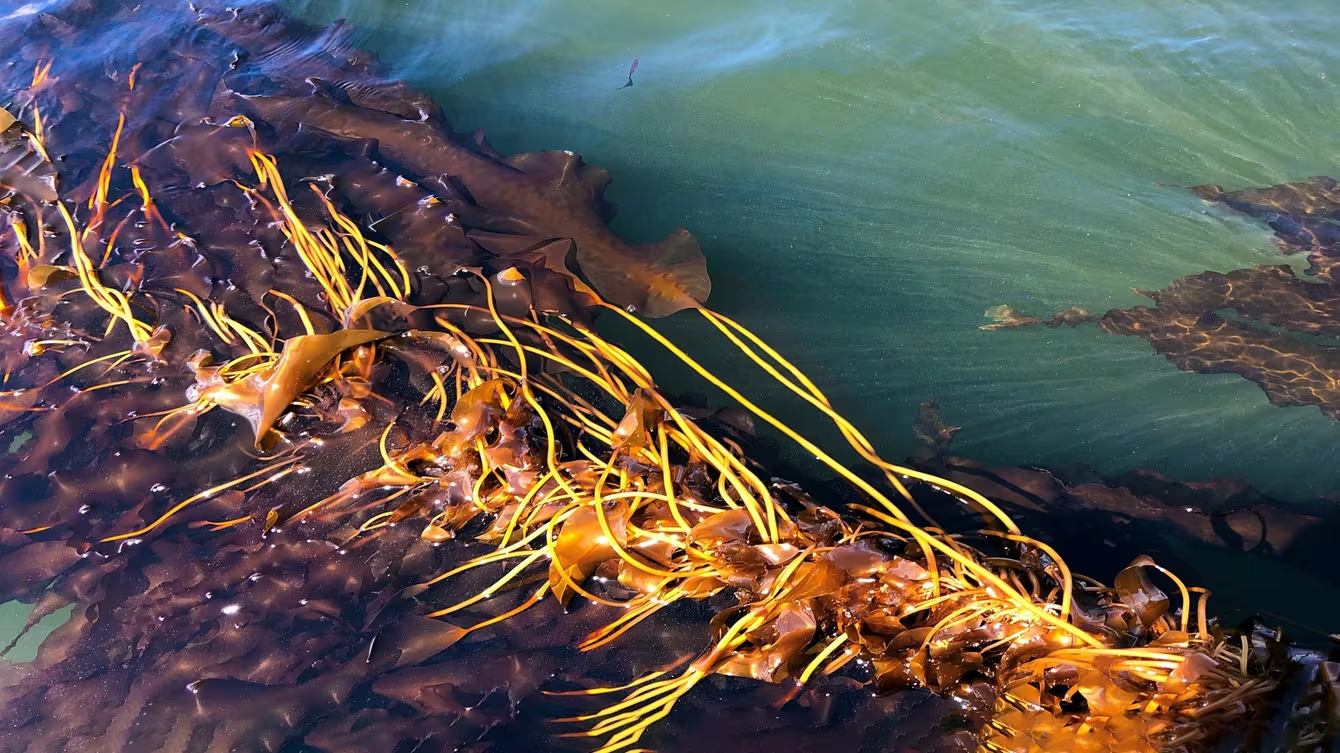
Kelp and other seaweeds provide essential micronutrients and bioactive compounds for human health. Their stem-like stipes (attached to the long leafy blades) are rich in alginate, an important compound extracted from seaweeds and used in pharmaceuticals and biomedicine. © David Bailey, Woods Hole Oceanographic Institution
Scott Lindell, from Woods Hole Oceanographic Institution (WHOI), will lead the project, which aims to test the performance of superior sugar kelp strains on farms and measure their yield and quality.
With funding over the next 2.5 years from WWF, the team plans to conduct two breeding and harvesting seasons from 2021 - 2023, on commercial partners’ farms in the Northeast US. By identifying different strains, they will match specific traits to meet targeted needs, such as taste and texture. Partners will take part in breeding and nursery practices with the goal of amplifying and testing new kelp varieties jointly developed by WHOI and the University of Connecticut, with funding from the US Department of Energy.
The overarching goal is to examine genetic and environmental influences on kelp strains, compare the strains by traits – such as colour, taste and shelf life – to meet the industry and consumer needs, and train hatchery operators on how to grow seed year-round. Long-term, the hope is for strong industry partnerships, and to create faster, better growing strains.
Seaweed farming does not rely on resources associated with traditional agriculture - fertile land, energy intensive fertilisers, and freshwater availability. According to Lindell, it’s easy to grow, beneficial for ocean ecosystems, and an efficient, low-carbon way to produce nutritious food for a growing population, both human and animals. Additionally, research suggests our future homes and vehicles could one day be powered by fuel made from farmed seaweed.
“Much of this new-found interest is fuelled by seaweeds’ climate-friendly qualities and the restorative properties associated with seaweed farms; absorbing excess carbon and nitrogen, buffering coastal pH, providing habitat and sheltering coastlines,” said Lindell.
“WWF’s commitment to this research provides critical support,” Lindell said. “With this timely investment, we plan to collaborate with the kelp farming industry at a critical stage of its development and help them adopt modern plant breeding methodologies and hatchery techniques.”
“Seaweed farming produces highly nutritious foods with very few inputs relative to terrestrial farming, and it improves the quality of water in which the farms operate,” says Paul Dobbins, senior director of impact investing and ecosystems services at WWF, as well as its seaweed lead. “The results of WHOI’s research will help farms advance their productivity, leading to greater environmental and societal gains. We are encouraged by the direction of this research and look forward to seeing progress over the next two growing seasons.”



